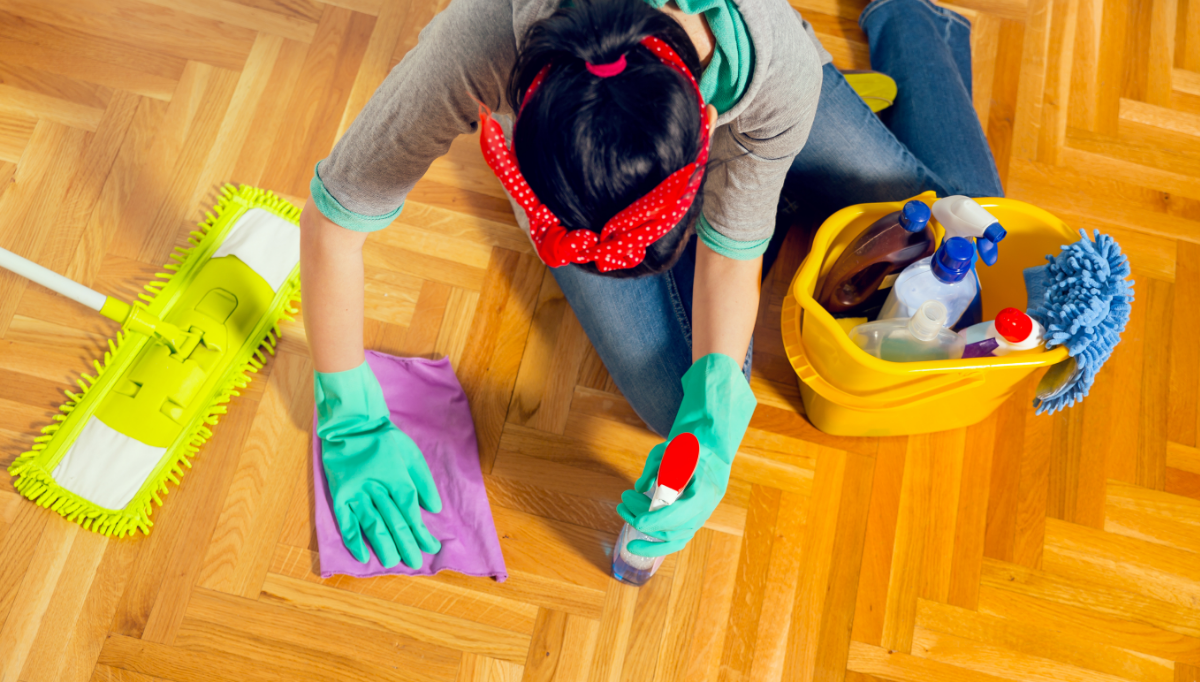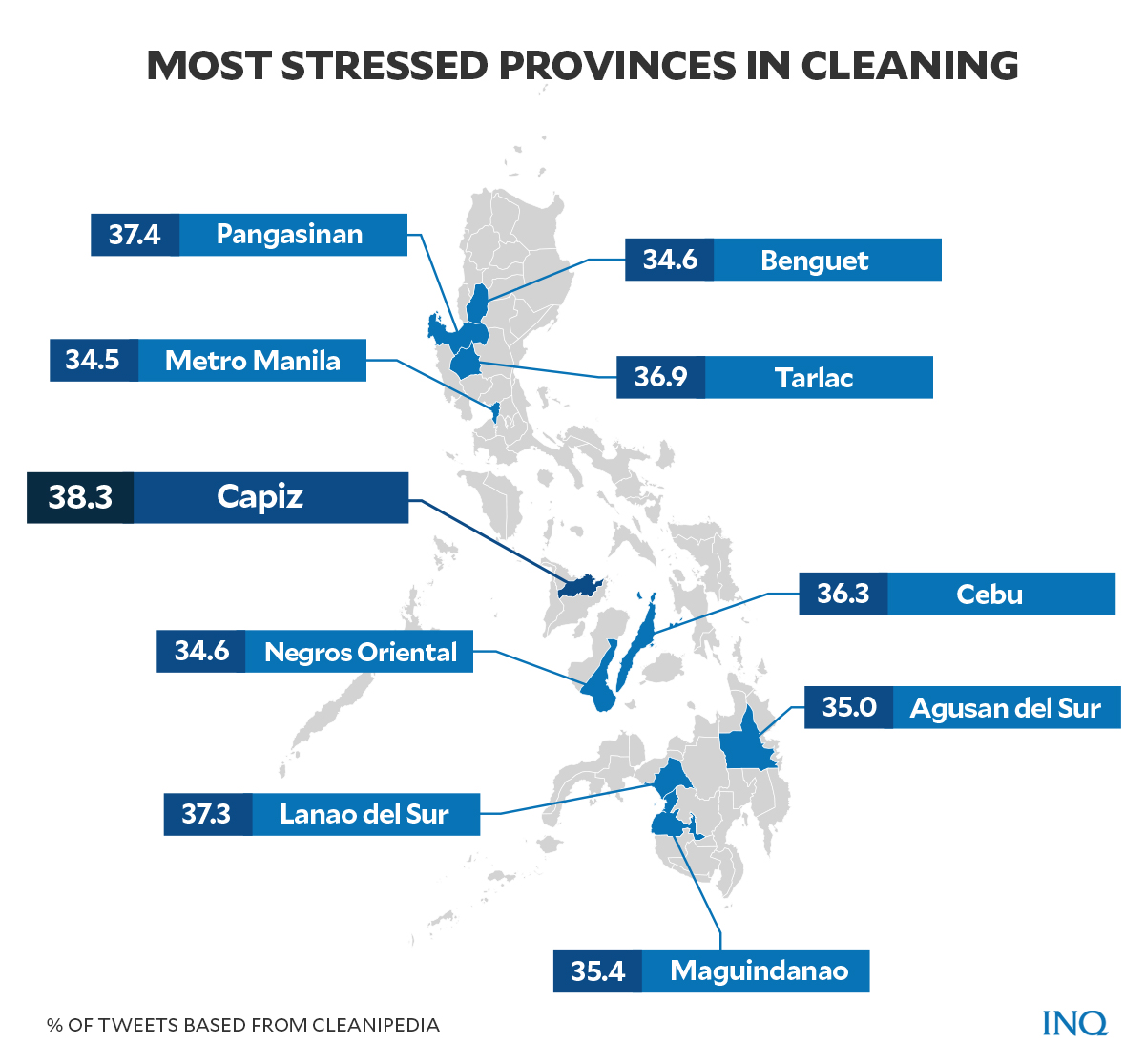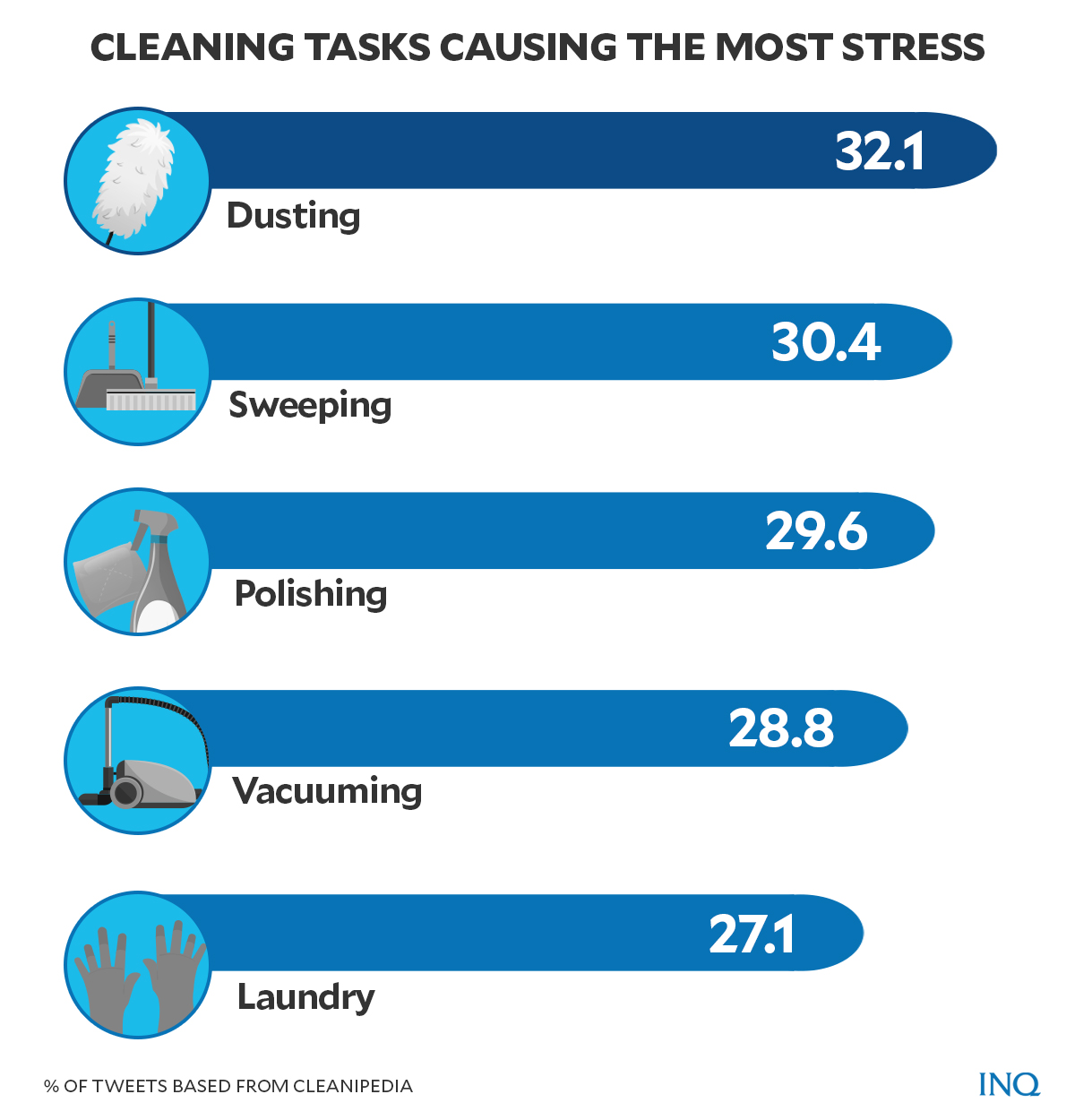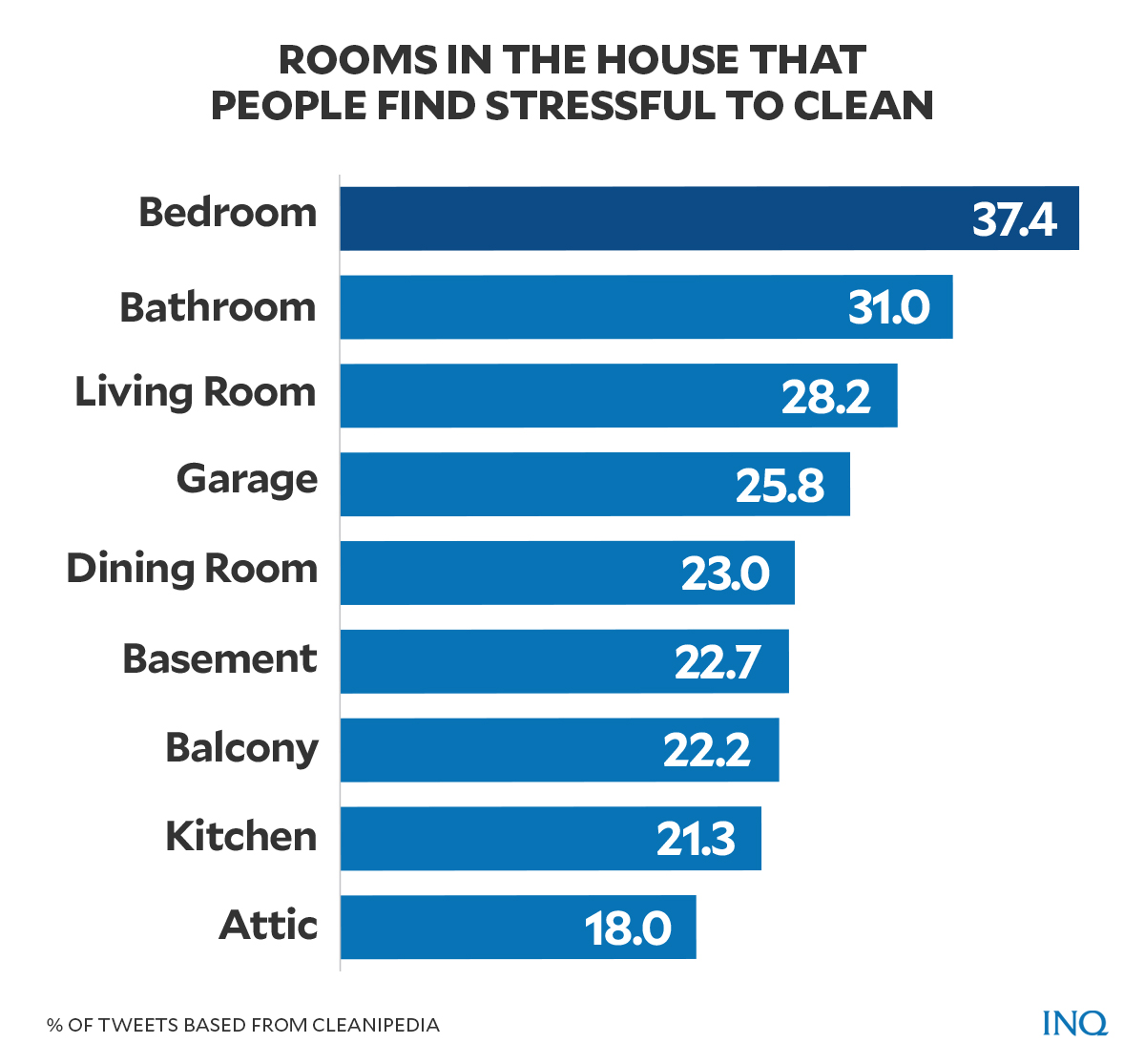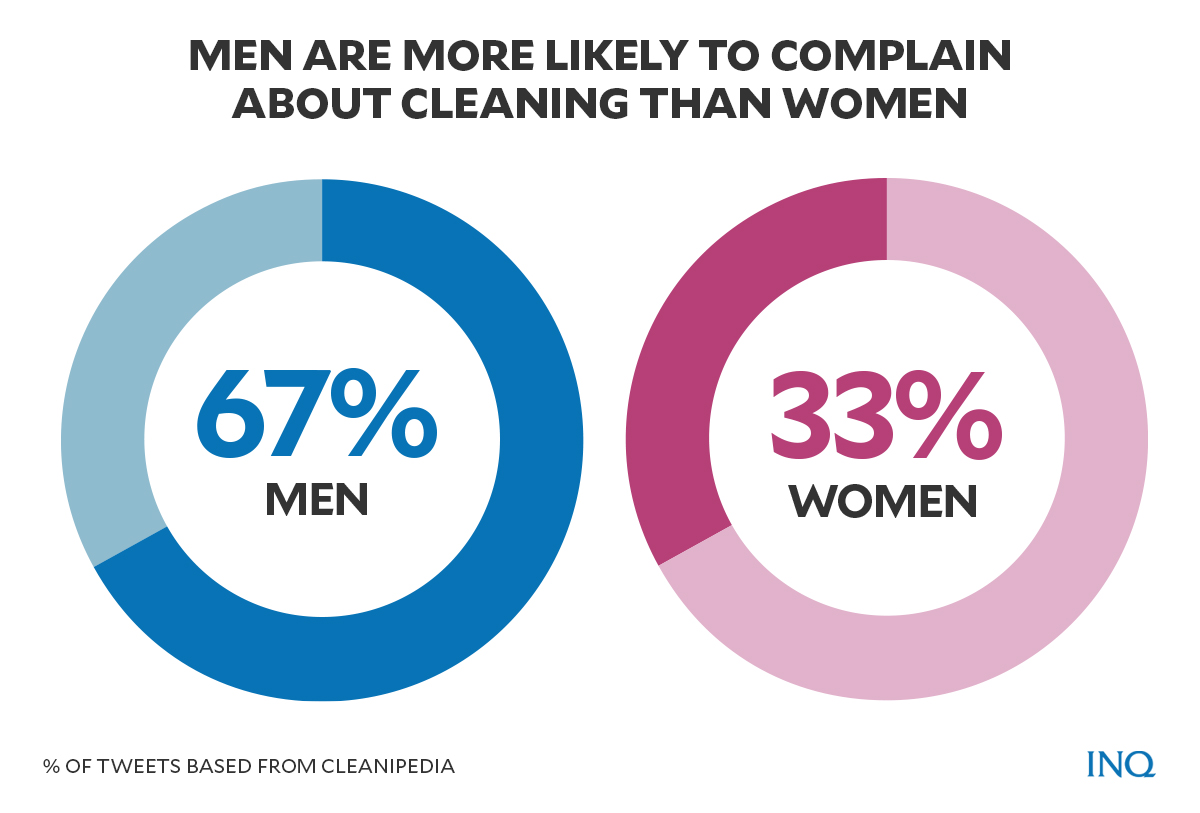When cleaning does not spark joy: Measuring stress of keeping dirt away
MANILA, Philippines—Amid the pandemic, when many are stuck inside their homes due to lockdowns or simply to avoid COVID-19, many have been devoting their time to tidy up their spaces.
For some, cleaning can be used to cope with stress during the pandemic. Many studies have shown that having a regular cleaning routine can improve one’s mental health, hygiene, and even lead to a good night’s sleep.
As the famous Japanese “tidying up” guru Marie Kondo said, throw away things that do not “spark joy.”
However, an analysis by Cleanipedia — a website or online resource for house cleaning tips and advice, and an initiative by Unilever — found that for some people, cleaning tasks do not spark joy.
Instead, it causes more stress — which past studies have shown could affect relationships in the long run.
Article continues after this advertisementStressed-out households
Cleanipedia analyzed thousands of tweets related to cleaning in order to see where most of the people who feel stressed due to cleaning come from.
Article continues after this advertisementREAD: Where do household cleaning tasks cause the most stress?
“Whether it’s vacuuming, dusting, or doing laundry, cleaning can be stressful. Cleanipedia analysed more than 800,000 cleaning-themed tweets to reveal the most stressful tidying tasks and where people complain about them the most in the Philippines,” said Cleanipedia in a statement.
It said it used an academic tool. called TensiStrength, to measure stress levels manifested in tweets using numerical scales from 1 (no stress) to 5 (very highly stressed). The gauge is based on the classification of words related to stress, frustration, anxiety, anger, and negativity, said Cleanipedia.
Data on the geotagged tweets related to cleaning showed that the Philippines ranked 6th out of 37 countries where people tweeted about getting stressed due to cleaning tasks.
Mexico topped the list with 35.1 percent of tweets classified as stressed using a sentiment analysis tool. It is followed by New Zealand with 32.7 percent of stressed tweets, Sweden with 32.1 percent, Australia with 30.7 percent, and the United States with 30.6 percent.
Around 30.3 percent of stressed tweets were traced to the Philippines.
Cleanipedia also studied where cleaning caused the most stress in the Philippines.
Based on tweets analyzed last month, the website found that many — or 38.3 percent — of the tweets classified as stressed in the Philippines came from Capiz.
“That’s a higher proportion than any other province in the country,” said Cleanipedia.
Also among the top 10 most stressed out provinces when it comes to cleaning were Pangasinan (37.4 percent of stressed tweets), Lanao del Sur (37.3 percent), Tarlac (36.9 percent), Cebu (36.3 percent).
The list also included Maguindanao (35.4 percent), Agusan del Sur (35 percent), Negros Oriental (34.6 percent), Benguet (34.6 percent), and Metro Manila (34.5 percent).
“Metro Manila is not a province but is included to provide a full comparison between locations in the Philippines,” Cleanipedia explained.
Most stressful task
The analysis also identified which cleaning tasks caused the most stress among the exhausted Twitter users.
Cleanipedia said the top five stressful cleaning tasks were:
- Dusting: 32.1 percent
- Sweeping: 30.4 percent
- Polishing: 29.6 percent
- Vacuuming: 28.8 percent
- Laundry: 27.1 percent
“Data is based on the proportion of cleaning-related tweets featuring task keywords that we classified as stressed using a sentiment analysis tool. Tweets were analyzed in August 2021,” Cleanipedia said.
The study added that 37.4 percent of the analyzed tweets were related to complaints when cleaning the bedroom. Cleaning a bathroom was the next most stressful task with 31 percent.
Other parts of the house which people find most stressful to clean were:
- Living room: 28.2 percent
- Garage: 25.8 percent
- Dining room: 23 percent
- Basement: 22.7 percent
- Balcony: 22.2 percent
- Kitchen: 21.3 percent
- Attic: 18 percent
Who complains more?
The data also showed that men are most likely to complain about cleaning.
“Our analysis of cleaning-related tweets among men and women reveals that more than two-thirds (67%) of the tweets that complain about cleaning are from men, with women accounting for 33% of those types of tweets,” said Cleanipedia.
The study relied on the first names used by Twitter users to identify whether the tweets were posted by male or female users.
Through the names of the most stressed tweeters when it came to cleaning, the study found that most tweets were from different individuals who shared the same first name: Shawn.
“Globally, 45.4% of cleaning-related tweets posted by people called Shawn were classified as stressed, which makes Shawns the biggest complainers about cleaning tasks.”
De-stress, de-clutter
To help people rediscover the joys and positive impact of cleaning, Cleanipedia’s Regina Ocampo advised people to divide tasks among household members.
“If you live with other people, make sure you don’t carry the burden of tidying the whole house yourself. Everyone needs to be on board and get stuck in when it comes to cleaning,” she said.
To those who want to avoid feeling overwhelmed, Ocampo also gave out tips to scrub out the stress from cleaning:
- “Start a big house clean by getting tasks that require waiting around out of the way first. This includes running the washing machine and dishwasher, bleaching the toilet, cleaning the oven, and any other task that needs time to ‘soak’. That way they’ll be halfway done when you come back to them after tidying the rest of the house.”
- “Laundry time can be stressful when it comes to sorting out dark and light clothes. If you don’t want to separate items by colour, consider using a colour catcher sheet that can be effective at catching loose dyes in the wash and preventing cross-staining.”
- “Put any loose, random items that you come across during your cleaning on a tray to sort out later. You’ll have clearer surfaces to work from and can get to work on polishing or wiping them down before any items have to go back.”
- “Don’t be distracted by what you find during a declutter. If you’re the type of person to find old things and get lost down memory lane (we’ve all done it!), put it aside in a safe place and come back to it once the cleaning’s all done.”
- “Whenever you leave a room, take one thing with you that’s not supposed to be there. That way you can put it in its rightful place and give yourself a bit more room to tidy. If you have lots of things that don’t really have a place, consider investing into some storage solutions like under-the-bed and stackable boxes.”
Cleanipedia, on its website, also listed some top tips to take the stress out of the most stressful cleaning tasks — which involves vacuuming, dusting, polishing, laundry, and sweeping.
